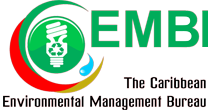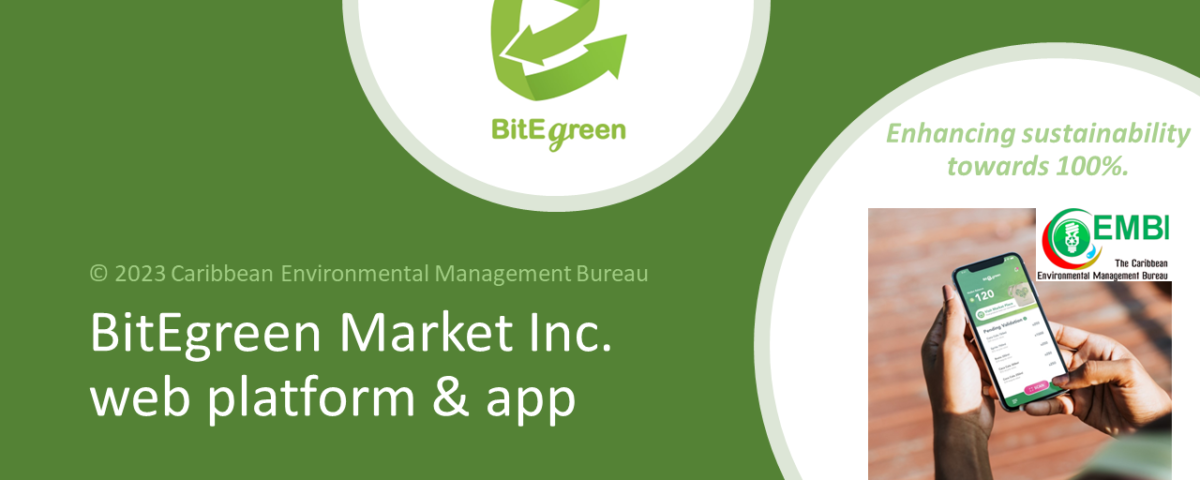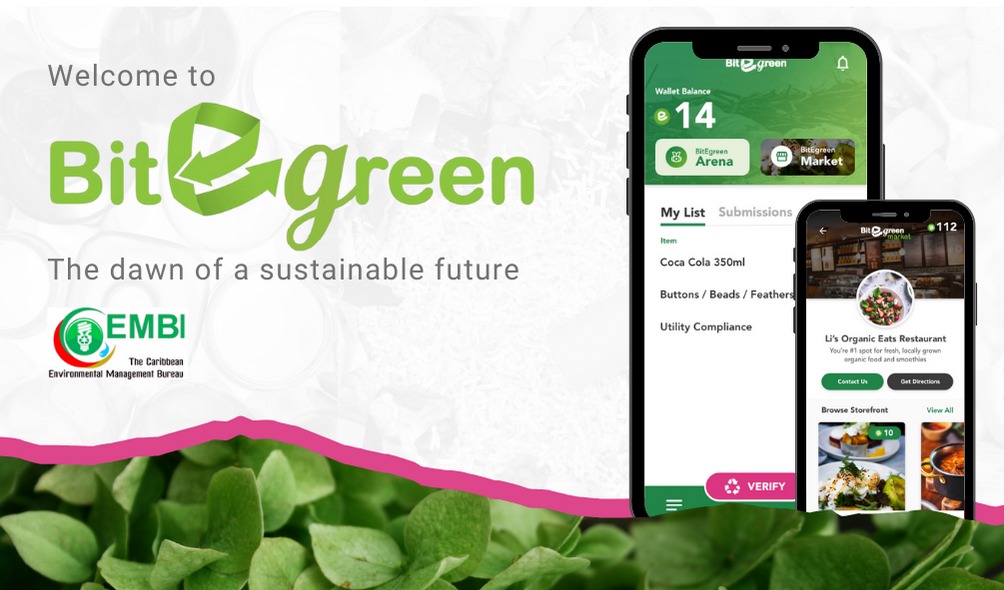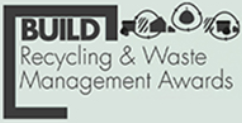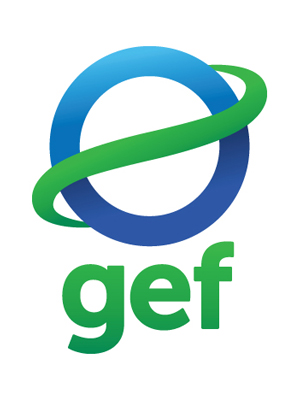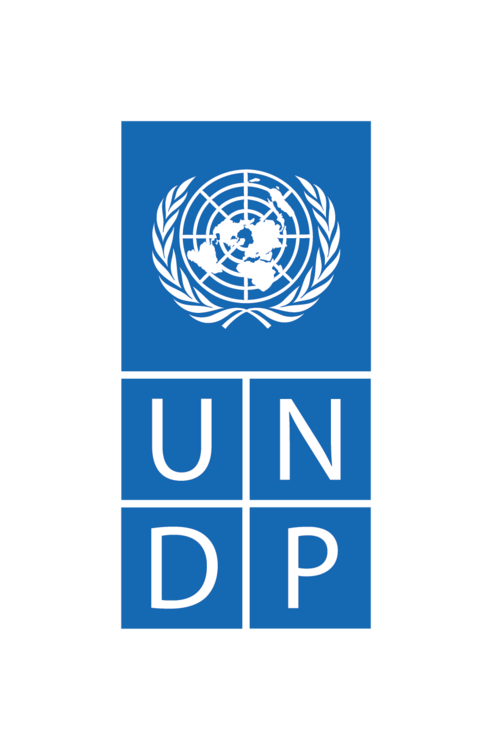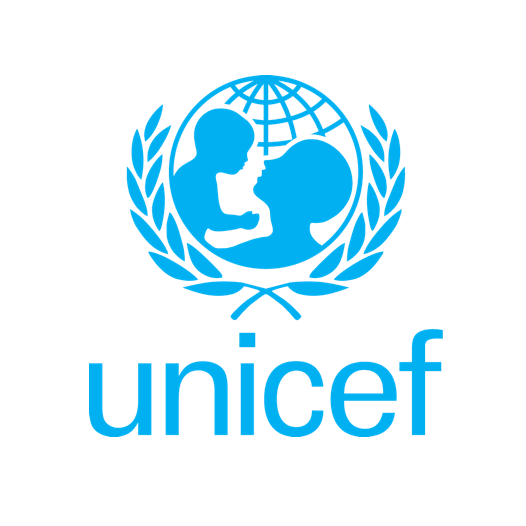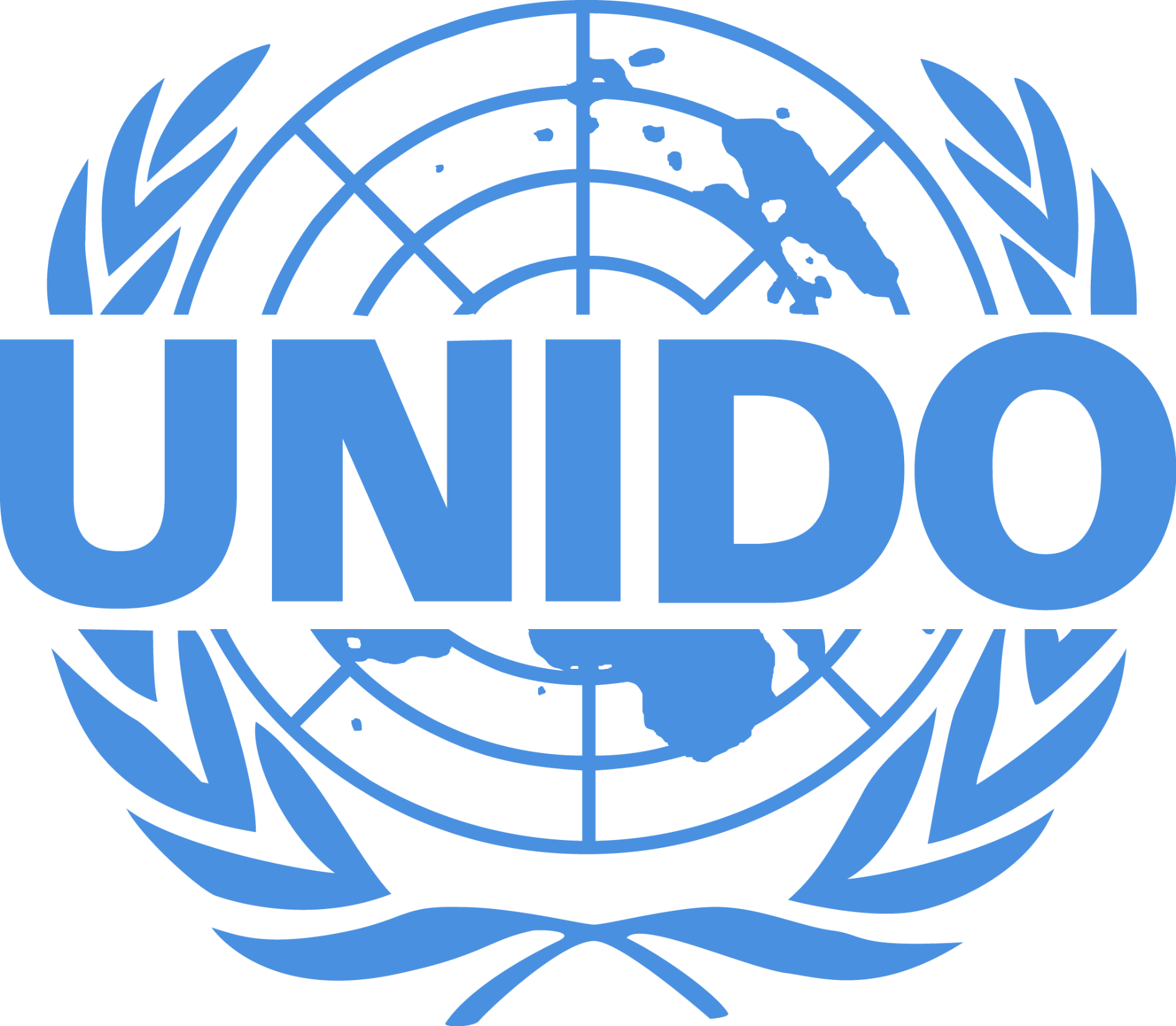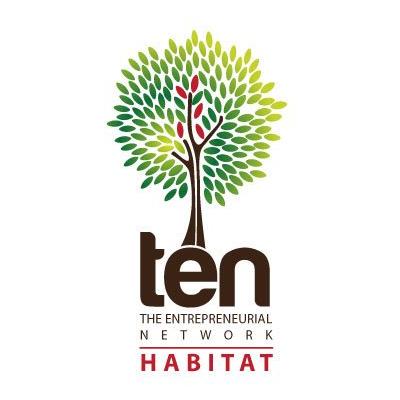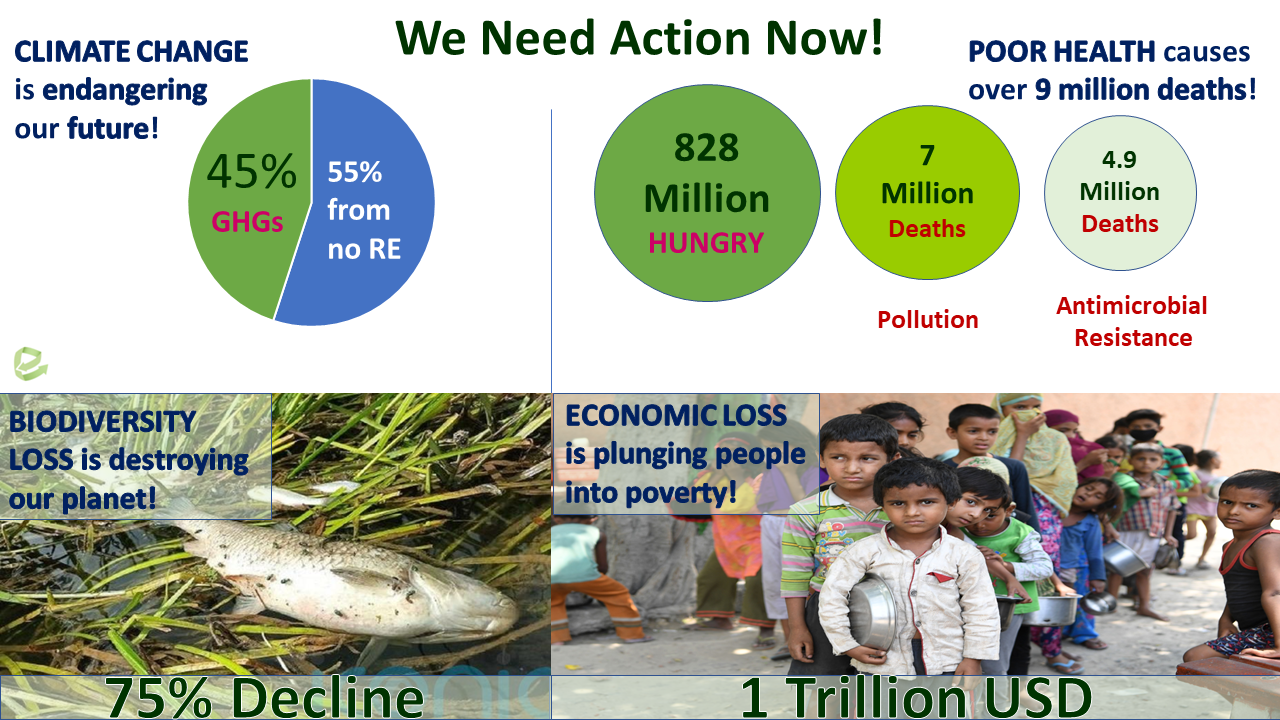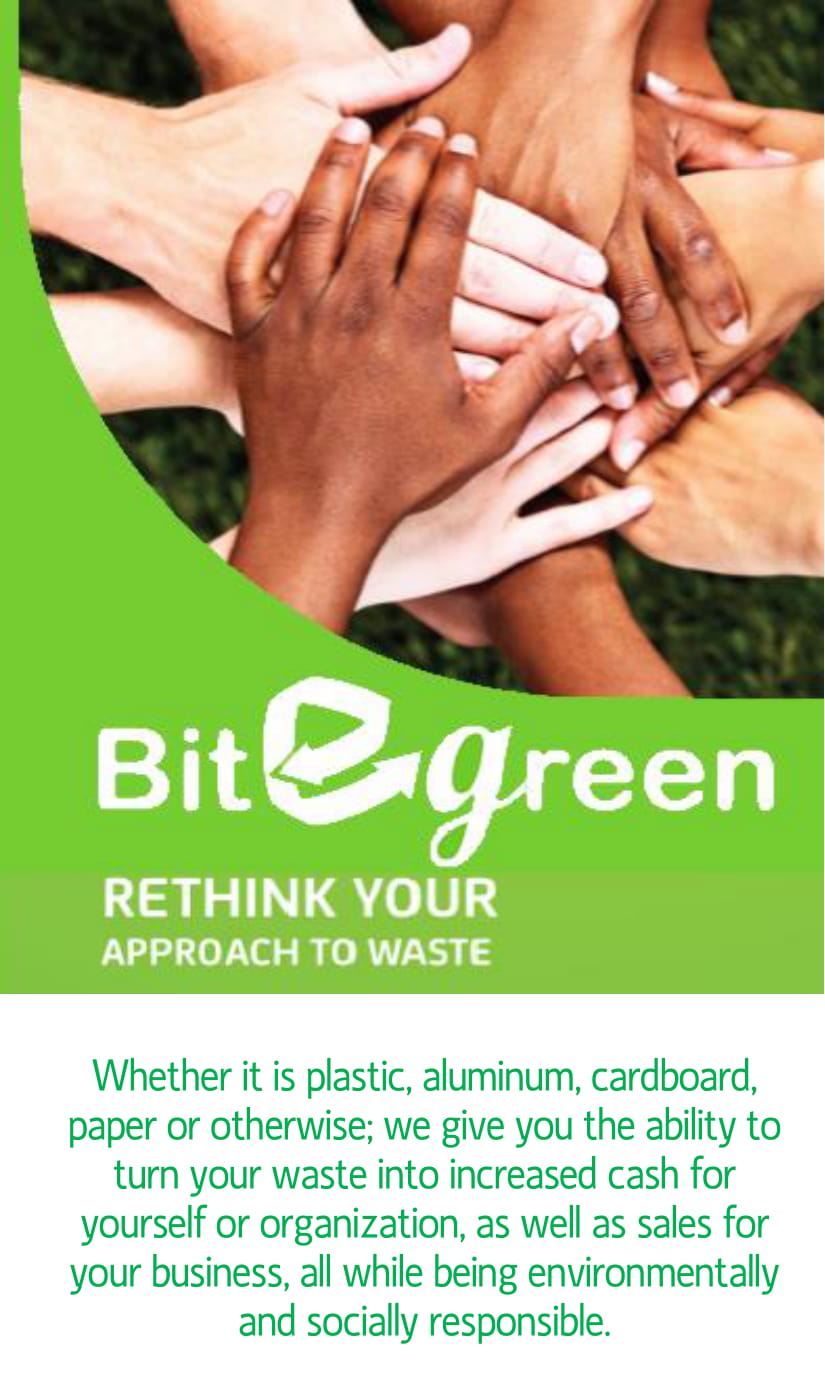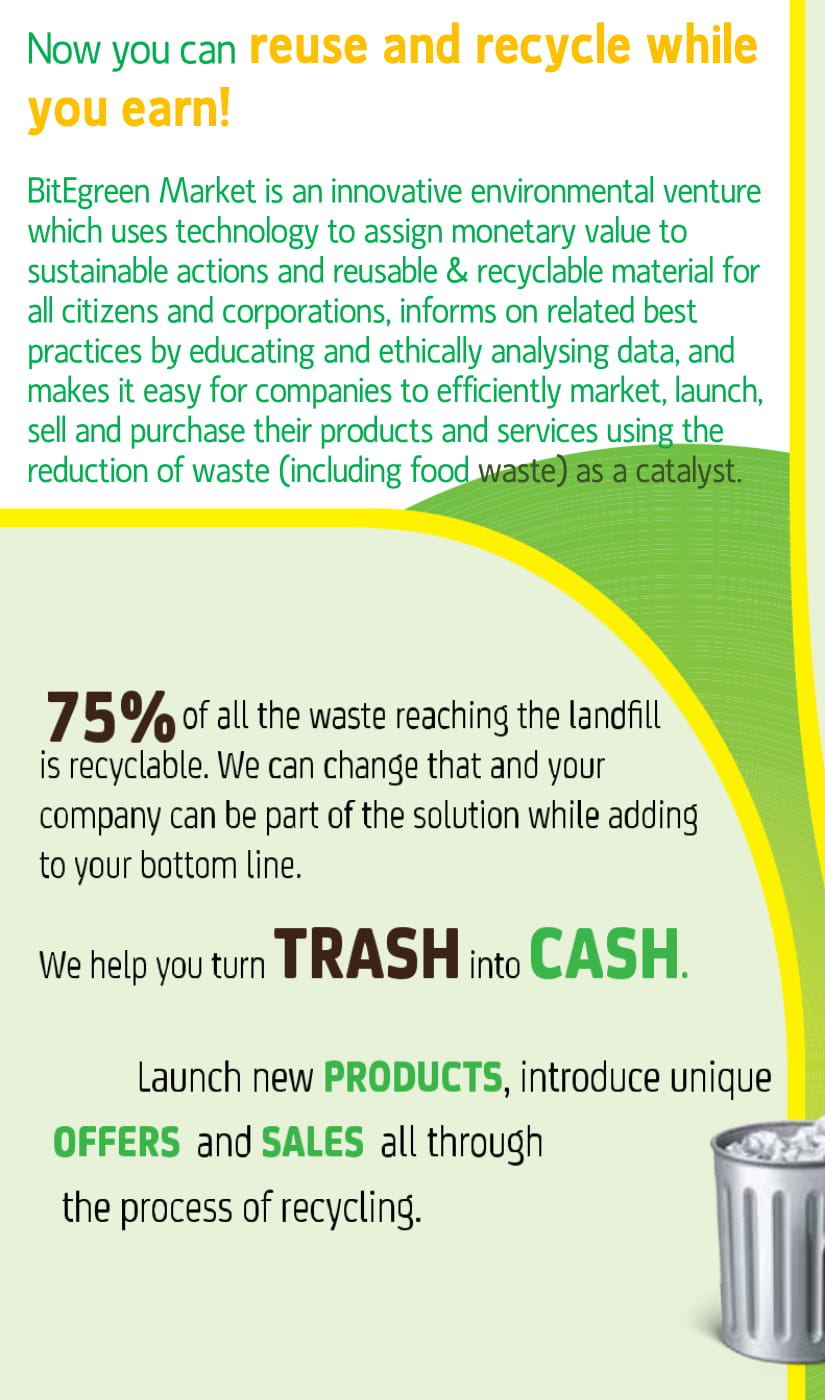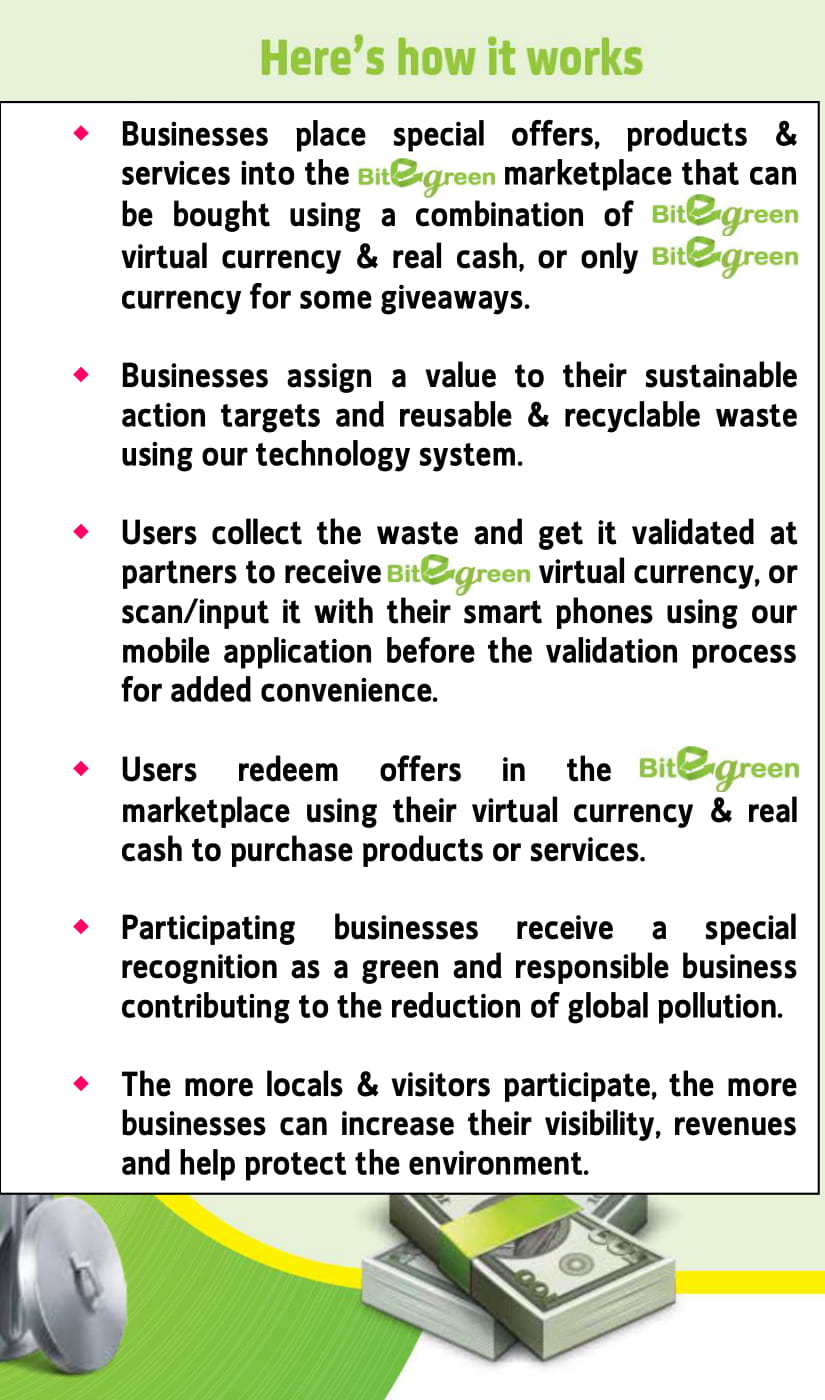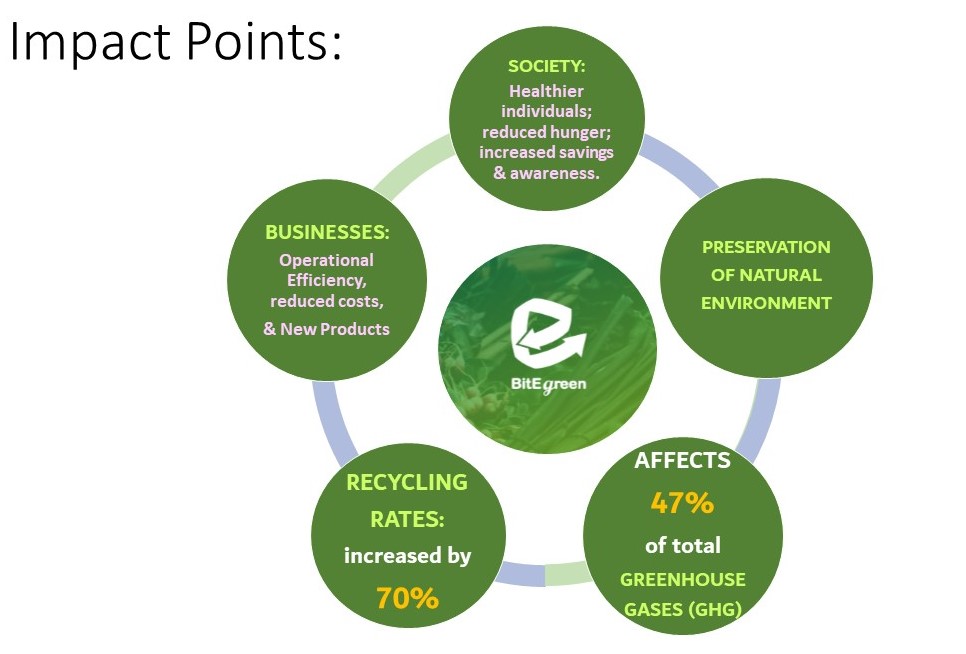@BitEgreenMarket | News: @BitEgreenReNews
Enhancing sustainability towards 100%.
 Use the QR code above to follow us on Instagram!
Use the QR code above to follow us on Instagram!
________
ORIGINAL QUALITY & ETHICAL STRENGTH
Purpose | People | Process | Production | Product | Partnerships | Profit | Participation | Planet
BitEgreen Market began its conception
in July 2017 to engage businesses,
institutions & individuals
including school children
towards social, environmental
and economic steadfastness.
________
BitEgreen Market Inc. is a Member of the USAID Climate Finance Investment Network (CFIN)
Grantors & In-kind Business Support:
S U M M A R Y
BitEgreen Market Inc. is designed to enhance operational efficiency by diverting waste for utilization in producing new products, supporting energy efficiency and improving sustainable livelihood actions, through facilitating and working with companies and individuals each playing a part that incentivizes all through our web platform and app. Essentially, this solution is a behaviour/behavior modification system that incentivizes for sustainable actions like recycling/waste diversion among others. It manages wasted energy and unhealthy actions – not just solid waste, but also other aspects of the Circular, Green or Blue Economy value chain including procurement of recyclable materials. This technology addresses solutions towards sustainable development, so every action done through our system addresses a related and interrelated sustainable development problem. The greater the impact through sustainable actions, the greater the successes of environmental solutions!
Our Mission: We innovate through technology: to value sustainable actions and reusable & recyclable material as a currency and resource for all citizens; to effectively and easily inform on related best practices through educating and ethically analysing data; and to motivate and assist all persons and businesses to efficiently produce, market, launch, donate, sell or purchase their products and services while protecting the environment for future generations.
Our Motto/Purpose: Enhancing Sustainability towards 100%.
Our Vision: Facilitate and catalyse the 100% capture and distribution of reusable, recyclable and renewable resources on planet Earth for sustainable products, by working with companies and individuals each playing a part in a manner that incentivizes all.
BitEgreen Market Project Description
BitEgreen Market Inc. is a social enterprise tech company focused on sustainable development actions through the use of our digital currency and otherwise to reward & incentivize behaviours/behaviors that enhance the overall operational efficiency of businesses through diverting waste and preserving energy for utilization in producing new products, while informing on best practices, analyzing data, and integrating social responsibility and environmental preservation into mainstream society via everyday activities, by working with organizations and individuals each playing a part that incentivizes all globally via our web platform and app.
This solution manages wasted energy and unhealthy actions – not just solid waste, but also other aspects of the Circular, Green or Blue Economy value chain including procurement of recyclable materials. “BitEgreen Market” incentivizes users for doing various sustainable actions, to increase motivation and engagement towards achieving the UN Sustainable Development Goals. We innovate through technology to value sustainable actions and reusable & recyclable material as a currency and resource for all citizens. We will effectively and easily inform citizens on related best practices through educating and ethically analysing data; and also motivate and assist all persons and businesses to efficiently produce, market, launch, donate, sell or purchase their products and services while protecting the environment for future generations; –with the additional thrill of gamification. This system is capable of (but not dependent on) using barcode scanner scales, smart garbage bins, reverse vending machines, mobile phones and an integrated online marketplace. As such, BitEgreen’s system is also designed to be accessible to disadvantaged persons within societies.
Overall, our work addresses climate change, waste management, health, food and natural resource security, water and energy efficiency, biodiversity, essential knowledge transfer, women’s empowerment, economic growth and public motivation towards responsible industry in a seamless solution; which can produce unusual data that give an overview of the impact on sustainable development issues in real time.
Project Justification
Pollution and other unsustainable actions negatively impact organisms’ health by disturbing ecosystems, which includes rising global temperatures that have the potential to alter ecosystems, by changing what can grow, feed and live within them. As such, pollution is responsible for 9 million premature deaths per year, with the majority caused by air pollution. The World Health Organization (WHO) estimates that 7 million people die each year due to air pollution. Natural habitats also play an important role in regulating climate and can help to absorb and store carbon. Less than 9% recyclable waste is reused globally in manufacturing new products (OECD), contributing to approximately 45% global greenhouse gases/GHGs (MacArthur Foundation). Additionally, a country with high imports, also generates waste throughout the journey of each product purchased globally. The Intergovernmental Panel on Climate Change (IPCC) indicated that if the world is serious about avoiding the worst effects of climate change, we need to cut methane emissions…” Anaerobic decomposition of organic waste in municipal solid waste landfills is one of the six major causes of methane.
“The ocean faces unprecedented threats to the ecosystem goods and services it provides to humanity, from climate regulation to food security to coastal tourism.”– (UNDP). Researchers estimate a loss of 1-5% in marine ecosystem services as a result of plastic pollution, including fisheries and tourism. For the US, this loss equals about $500 billion to $2.5 trillion per year. UNEP indicates that marine litter, and chemicals also impact the value of marine goods and services. Other studies proved there is significant and direct correlation between tourism competitiveness and quality of the natural environment overall (Weldearegay, 2017).
Worldwide, the Circular Economy has potential for cost savings up to US$1 trillion by 2025 (*pre-pandemic – World Economic Forum) and business opportunities worth US$4.5 trillion (WBCSD). Also, the International Labour Organization (ILO) estimated a global net increase of jobs between 7 and 8 million by 2030 due to shifting towards circular economy, as compared to business-as-usual. Presently, no business manages recyclables and sustainability with technology in a way to drive multiple aspects of productivity in multiple industries.
The inter-relationship between environmental pollution and pollutants originating from human activity in the terrestrial landscape and nearshore marine environment, pose significant economic and social sustainable development challenges (there are also other hidden relationships in all areas of the UN Sustainable Development Goals.– For example, energy efficiency is one of the most effective water conservation strategies there is.) Furthermore, “80% of litter in the oceans is from land-based sources. Better waste management on land can help oceans recover.”– (World Bank). “Non-organic land management can also have negative impacts on coral reef ecosystems. Research shows that synthetic pesticides, herbicides and fertilizers quickly make their way from land to ocean. These chemicals can accumulate in fish and inhibit reproduction in both fish and corals”– (Maui Nui Marine Resource Council). Excessive richness of nutrients in the ocean and other bodies of water due to runoff from the land, also cause algal blooms and dense growth of plant life, causing death of animal life from lack of oxygen. What’s more, “increased ocean temperatures and changing ocean chemistry are the greatest global threats to coral reef ecosystems. These threats are caused by warmer atmospheric temperatures and increasing levels of carbon dioxide in seawater. As atmospheric temperatures rise, so do seawater temperatures.”– (United States Environmental Protection Agency). This also causes changes in occurrence of marine algae blooms.
Additionally, “one third of all food produced is lost or wasted –around 1.3 billion tonnes of food –costing the global economy close to US$940 billion or approximately US$1 trillion each year. Up to 10% of global greenhouse gases comes from food that is produced, but not eaten. Source: United Nations Environment Program (UNEP) (2021)”. “Hunger in Latin America and the Caribbean increased to 47.7 million people in 2019, after five years of continuous rise, according to the new FAO report – which was made worse by the pandemic.” Hence, managing wastage of food resources both in general and from oceans will be advantageous to the economies and livelihoods.
“Food waste that breaks down without oxygen emits methane, (which is 25 times more potent than carbon dioxide) and is one of the main causes of global warming and climate change. Also, when organic material breaks down in landfills and water filters through it, a liquid called leachate is created which is highly toxic and can pollute land, groundwater and waterways. So, sending food waste to landfill is not a sustainable solution.
Presently, an estimated 33% of the world’s soil is severely degraded and food waste converted to compost could help solve this problem. Adding compost to soil improves its resilience, important during times of drought for instance, and reduces the amount of water needed to grow plants. It also improves the soil’s structure, fertility and ability to withstand certain pests. Furthermore, compost can help prevent nutrient pollution from runoffs that harm marine life, including coral reefs; by providing attachment sites for nutrients. Compost is also an effective way to sequester carbon–i.e. remove carbon (CO2) from the atmosphere and store in the soil carbon pool. Farmers need high quality organics to fertilize their land, not landfill. Composting is an easy way to make a grass roots difference when it comes to climate change.” (https://nourishmagazine.com.au/earth/compost-for-climate-change)
Lack of infrastructure and knowledge around general circularity processes is a hindrance to most individuals/citizens and businesses. Inefficient waste management systems can result in large amounts of resources being squandered, and in the case of natural resources inclusive of marine biodiversity – cause deterioration or destruction. For example, many millions of dollars will be spent on waste management per year, sending tonnes of garbage to landfills daily, rather than efficiently utilizing this waste in new and better products while focusing on sustainable livelihoods.
The complexity in developing environmental solutions is the interconnectedness with all aspects of life. Any solution can appear to have a positive impact on an issue; however, most solutions – even green ones, will likely create another environmental problem simultaneously. Of related concern is antimicrobial resistance in humans, where globally there were 4.95 million deaths by 2019 associated with antimicrobial resistance (AMR). According to the World Health Organization (WHO) it is estimated that bacterial AMR was directly responsible for 1.27 million global deaths in 2019 and contributed to 4.95 million deaths. According to UNEP, “The triple planetary crisis of climate change, nature and biodiversity loss, and pollution and waste is also exacerbating antimicrobial resistance. Higher temperatures, storms and floods can fuel the spread of bacterial, viral, parasitic, fungal and vector-borne diseases. Extreme weather events can overwhelm wastewater treatment plants, allowing untreated sewage to contaminate surrounding communities, while biodiversity loss depletes the richness of plant species that could potentially yield the next breakthrough medicine.” Low- and middle-income countries bear the burden of drug-resistant infections.
“The complementarity principle in physics holds that objects have certain pairs of complementary properties which cannot all be observed or measured simultaneously.” Our system reduces the likelihood of contributing to other environmental and social problems while going about daily business and tasks; and increases action on multiple sustainable development goals in a single solution or action for greater success in achieving global goals. Any legal business/organization/individual will be able to join our system globally to participate in this initiative to their benefit as well as others and the environment.
🎥 Hear more from our Executive Founder on the BitEgreen Market project.
📄 “This report identifies twelve circular inventions that, if combined, can reduce between 285 and 695 billion tonnes CO2 equivalents during the next 30 years.”
Click here for further details on benefits, or you may view related articles.
◇
BitEgreen’s various industry & COVID-19 mitigation benefits. – April 11th, 2020
《 A DEEPER VIEW 》 | 《 BROCHURE 》
![]()
《 Read Articles 》
